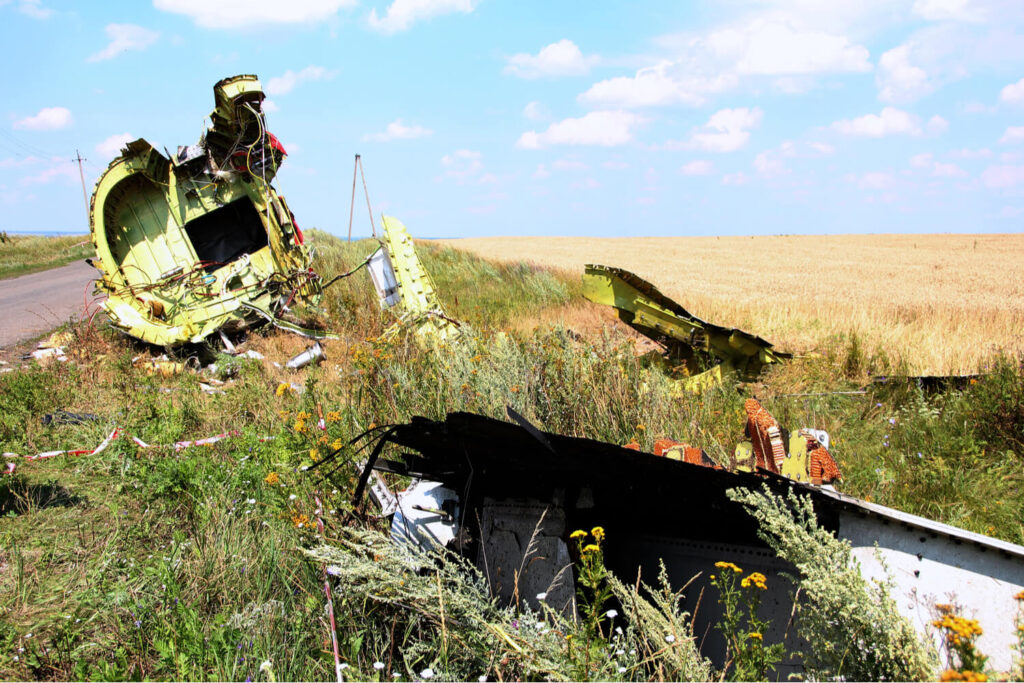Five years after the Malaysian Airlines flight MH17 was downed above Ukraine, four men will be tried in absentia for murder in Amsterdam, the Netherlands.
Russians Igor Girkin, Sergey Dubinsky and Oleg Pulatov, and Ukrainian Leonid Khartchenko, four senior officers of the pro-Russian separatist faction, are all accused of being involved in the transportation of a Russian-made anti-air BUK missile system from Russia to Ukraine. The missile was the one that shot down the Boeing 777 as it was flying at an altitude of 10,000 meters, on July 17, 2014. 298 people were killed, including 196 Dutch nationals.
Girkin, a former colonel of the Russian intelligence service FSB, was the self-proclaimed Minister of Defense of the Donetsk People’s Republic at the time of the downing. Dubinsky, a war veteran, was responsible for the separatist intelligence service. Pulatov, his deputy, is a former Lieutenant colonel in the Russian Armed Forces. As for Khartchenko, he was involved in a separatist reconnaissance battalion.
The four men were formally charged with murder in June 2019. As neither Russia nor Ukraine extradites their nationals prosecuted abroad, the accused will be tried in absentia at the court of Schiphol, in Amsterdam. The trial, due to start on March 9, 2020, could take a year. They risk prison terms of at least 30 years.
The International Criminal Investigation Team (JIT) is still working on identifying the people that actually shot the missile.
Shortly after the crash, in 2014, an independent journalist team named Bellingcat presented a report to the Dutch authorities identifying the missile as a Russian BUK. In October 2015, the Dutch Safety Board reached a similar conclusion. On May 24, 2018, the JIT concluded that the BUK missile was supplied by the 53rd anti-air brigade based in Kursk, Russia.
The Russian authorities have repeatedly denied the investigation’s conclusions, putting the blame on Ukraine instead. Ahead of the trial on March 6, 2020, Russian diplomacy spokeswoman Maria Zakharova accused the Netherlands of trying to “put pressure on the Dutch court” through a media campaign targeting Russia. “In the last days before the hearings, all this was launched in order to compensate for the gaps in the evidence base and to hide the juggling of facts under a pre-selected version,” Zakharova claimed. Dutch Prime Minister Mark Rutte responded that the court’s work is completely independent.
